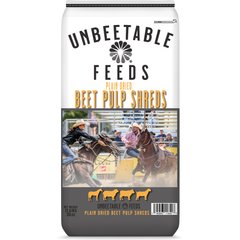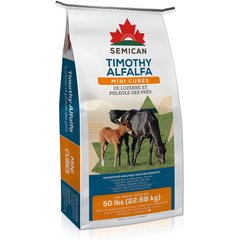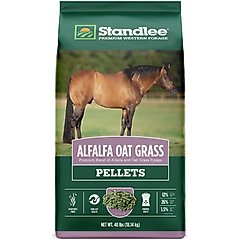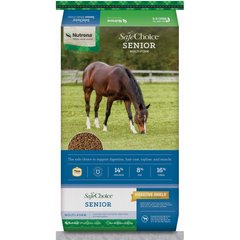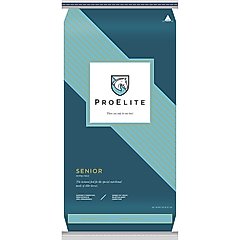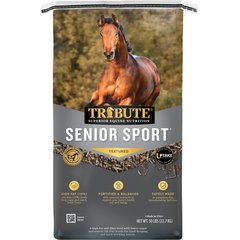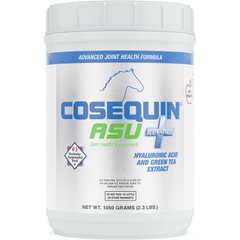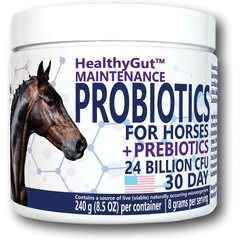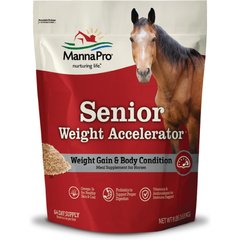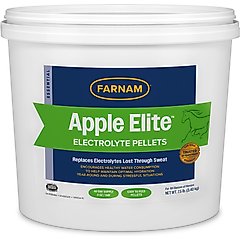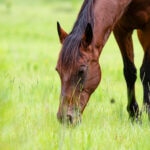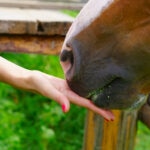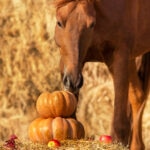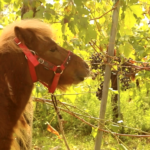Your Complete Guide To Senior Horse Feed
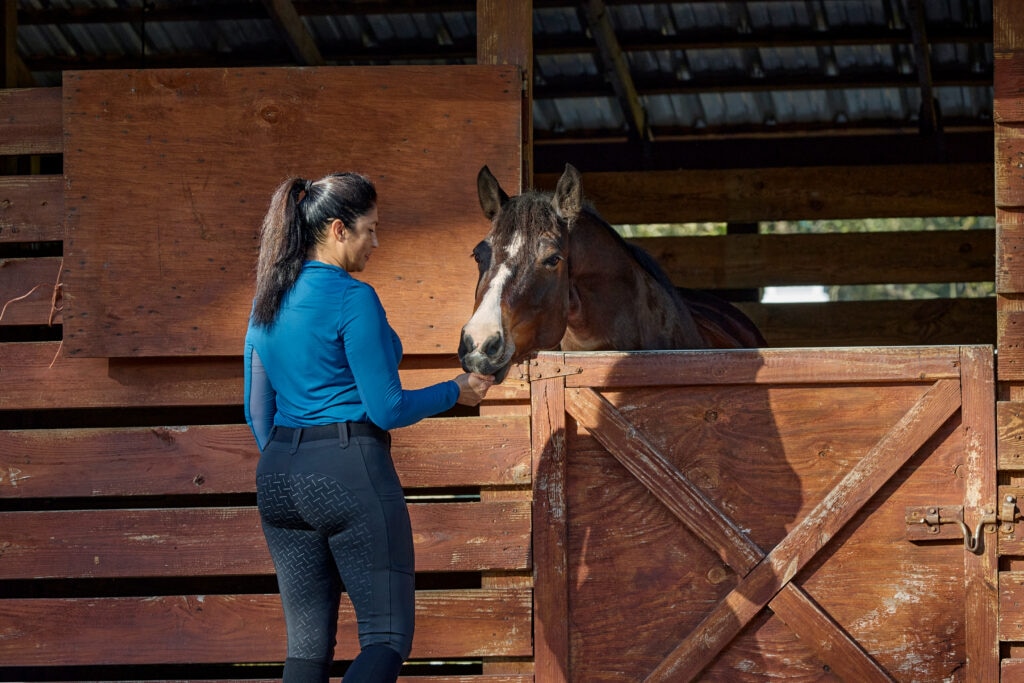
Photo by Chewy
Once a horse reaches 15 years old, they’re typically considered a senior—and with that comes a new set of nutritional needs. As horses age, their bodies undergo changes that directly affect how they process food, maintain weight, and absorb vital nutrients.
Feeding your senior horse the right food can help support your equine companion’s evolving needs, potentially helping extend their longevity. This guide to senior horse feed will help you accomplish just that.
Why Senior Horses Need a Different Diet
The unique needs of individual horses—of any age—vary based on genetics, management, lifestyle, and overall health. Generally, horses beyond 15–20 years old often face some of the following physiological challenges:
- Digestion slows down. Older horses may not absorb nutrients as efficiently, meaning their diet needs to be more nutrient-dense to prevent weight loss and nutritional deficiencies or imbalances. Changes in manure consistency, like diarrhea and other digestive issues, are common.
- Metabolism shifts. Some senior horses lose weight easily, while others gain weight due to reduced activity levels and metabolic problems.
- Dental needs change. Worn or missing teeth make chewing hay and other rough forage more difficult, directly contributing to both weight loss and painful dental issues. Some signs of dental problems include quidding (dropping feed while eating) and weight loss.
- Energy levels can decrease with age—but not always.
Some signs that your aging horse may need a diet adjustment include:
- Noticeable weight or muscle loss
- Trouble eating
- Declining energy levels
- Various digestive issues (diarrhea, colic)
Recognizing these signs early allows you to adapt your horse’s nutrition before problems start impacting their health, welfare, and longevity.
What Nutrients Do Senior Horses Need?
Senior feeds are specifically designed for horses who have trouble chewing or digesting feed appropriately.
Key ingredients in senior horse feed include:
- Protein: Supports muscle maintenance and repair.
- Fiber: Essential for digestive health. Look for alternative fiber sources like beet pulp or hay cubes, which are easier to chew. Try:
Recommended Products
- Carbohydrates: Provide energy and help maintain weight.
- Vitamins and minerals: Antioxidants such as vitamin C, vitamin E, and selenium support immune function.
Also keep in mind that hydration is critical. Senior horses may drink less, so offering soaked feeds can encourage water intake. Soaking food will also make it easier for senior horses to eat.
Common Feeding Challenges in Senior Horses
Older horses often face feeding challenges that require thoughtful management and a different feeding regimen:
- Dental issues: Missing or unevenly worn teeth can make it hard for older horses to chew hay or feed properly.
- Weight fluctuations: Some seniors struggle to keep weight on, while others may gain weight due to less activity or slower metabolism.
- Metabolic disorders: Conditions like Cushing’s disease (PPID), insulin resistance (IR), and equine metabolic syndrome (EMS) can affect what and how much senior horses can safely eat.
- Mobility limitations: Joint stiffness from age-associated arthritis may complicate access to feeders or water troughs, potentially leading to weight loss and dehydration.
How To Choose the Best Feed for Older Horses
Senior equine feeds are designed for the aged horse in mind, but not all brands and types are the same. Choosing the right option depends on your horse’s health, weight, health status, and activity level.
Forage Options
Hay products should remain the foundation of your horse’s diet if possible. Nutritionists recommend that all horses consume 1.5–2% of their body weight in grass or hay each day.
For seniors who struggle with regular long-stemmed hay, forage alternatives include:
- Soaked hay cubes or pellets, which are softer and easier to chew. For example, Standlee Premium Alfalfa Pellets can be soaked to create a soft, hydrating, nutrient-rich, and high-energy meal.
Recommended Product
Beet pulp is a highly digestible source of fiber and excellent for weight gain. It should always be soaked to prevent esophageal obstruction (choke).
Senior Feeds
Many commercial brands offer specially formulated complete feeds designed for older horses. These products often combine forage and concentrates into one feedbag, making them suitable for horses unable to chew hay. Popular options include:
- Nutrena SafeChoice Senior Horse Feed offers high-fat, low-starch nutrition with added prebiotics and probiotics for gut health and digestive support.
Recommended Product
- ProElite Senior is a low-starch, low-sugar, beet pulp-based formula with added fat.
Recommended Product
- Tribute Senior Sport features high-fat and high-digestible fiber content to support aging equine athletes without the loss of energy or body condition.
Recommended Product
Concentrates and Supplements
Once you’ve designed a balanced diet that meets your senior horse’s fiber and calorie needs, adding targeted nutritional supplements can help fill in any dietary gaps:
- Fat sources, like vegetable oil or rice bran, provide safe, calorie-dense energy for horses who need to gain weight.
- Research-backed joint supplements, like Cosequin, can aid mobility and comfort for seniors with arthritis.
Recommended Product
- Probiotics, like Equa Holistics HealthyGut Maintenance Probiotics and Manna Pro Senior Weight Accelerator, can help support gut health by promoting the growth of healthy microbes in the large intestine.
Recommended Products
Mash and Soaked Feeds
Senior horses often benefit from mashes made by soaking a combination of:
- Hay pellets
- Hay cubes
- Beet pulp
- Rice bran
- Complete feed
These slurpy soups are easy to eat, hydrating, and palatable.
Commercial senior feeds can easily be soaked into a mash by adding room temperature or warm water to the meal and letting it sit for about 10 minutes.
Tips for Feeding Senior Horses
Keeping your senior horse healthy generally requires additional effort and monitoring. Some helpful tips include:
- Feed smaller meals more often. Instead of one or two big meals, offer multiple smaller ones throughout the day to ease digestion and reduce blood sugar spikes.
- Introduce new feeds gradually. Mix new feed with the old over time to avoid upsetting their stomach.
- Ensure easy access to hay, grain, and water, especially if your horse has mobility challenges.
- Make seasonal adjustments. Offer warm water in the winter and electrolytes in the summer to help with hydration.
Recommended Product
- Monitor their weight regularly. Use a body condition score (BCS), scale, or weight tape to stay ahead of any weight changes.
Don’t Forget Vet Care
Feeding is just one piece of senior horse care. Work with your veterinarian to also incorporate the following elements into your annual senior equine wellness plan:
- Veterinary checkups: Annual or biannual exams help detect underlying issues early. Metabolic and endocrine conditions like PPID, IR, and EMS have a profound effect on the feeds your horse can and can’t eat.
- Dental care: Annual dental exams allow the practitioner to address uneven, sharp, or expired teeth to prevent discomfort and improve feed efficiency.
- Routine blood work: Blood tests monitor vitamin/mineral deficiencies and metabolic conditions.
FAQs About Senior Horse Feed
What is the difference between senior horse feed and regular horse feed?
Senior feeds are more digestible, nutrient-dense, and often serve as complete feeds with added fiber. A complete feed means it meets all of a horse’s nutritional needs, including micro and macro nutrients.
Does senior horse feed need to be soaked?
Not always, but soaking can make it easier to chew, digest, and hydrate your horse. Always thoroughly soak beet pulp to prevent choking.
What is the best senior horse feed for weight gain?
High-fat, high-fiber options like Manna Pro Senior Weight Accelerator or beet pulp mashes are a solid choice. Your veterinarian or equine nutritionist can give you tailored product recommendations based on your horse’s individual needs and dietary restrictions.
What should I feed my senior horse who has Cushing’s disease?
Low-starch, low-sugar feeds are essential. Look for specialized senior or metabolic-friendly formulas.

